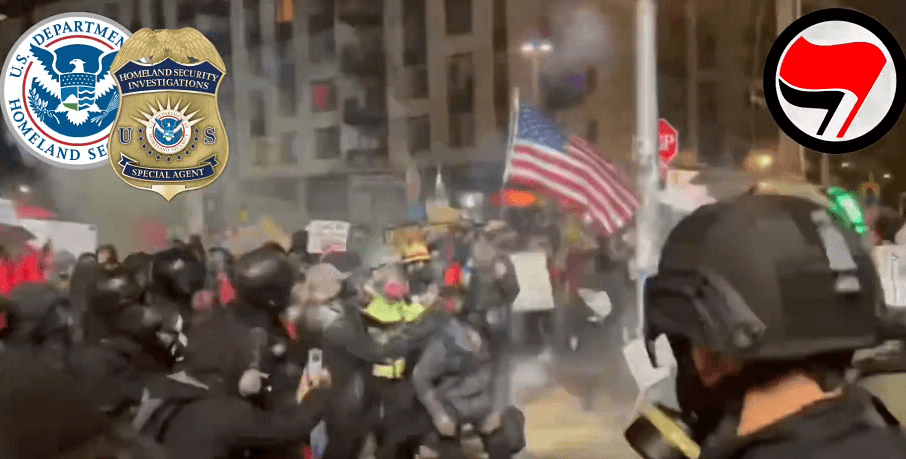GOP Senators Advance Bill to Codify Antifa as Domestic Terror Organization
"Violent extremists who target our law enforcement officers and destroy our communities must be held accountable. It's far past time to designate Antifa a terrorist organization."

A bipartisan group of Republican senators introduced the Stop ANTIFA Act on November 3, 2025, aiming to enshrine President Trump's September 2025 executive order designating Antifa as a domestic terrorist organization into federal law. The legislation, led by Sens. Ashley Moody (R-Fla.), Rick Scott (R-Fla.), and Mike Lee (R-Utah), directs the National Joint Terrorism Task Force to prioritize investigations into Antifa's activities, treating them as coordinated threats to public safety and government functions.
President Trump's executive order, issued one week after the assassination of conservative activist Charlie Kirk on September 10, 2025, classified Antifa as a "militarist, anarchist enterprise" seeking to overthrow the federal government. It highlighted the group's use of illegal tactics, including armed standoffs with law enforcement, organized riots, violent assaults on federal officers, and doxing of political figures. The order noted Antifa's recruitment of young Americans through radicalization and training in violence, as well as efforts to shield operatives' identities and obscure funding sources to evade detection.
Antifa, short for "anti-fascist," emerged in the U.S. in the 1980s as a loose network of far-left militants opposing perceived fascism. It gained prominence during the 2017 Charlottesville rally and escalated during 2020 protests following George Floyd's death, where affiliates participated in riots causing over $2 billion in property damage across 140 cities, according to the Insurance Information Institute. Tactics include black bloc formations—wearing masks and dark clothing for anonymity—to commit arson, vandalism, and assaults. In Portland, Oregon, from 2020 to 2023, Antifa-linked groups attacked federal courthouses with commercial fireworks, lasers, and Molotov cocktails, injuring dozens of officers. The July 2025 attack on an ICE facility in Alvarado, Texas, by 11 Antifa members—charging terrorism for attempted murder of federal officers—exemplified the pattern, with assailants firing 50 rounds and planting incendiary devices.
Funding for Antifa remains opaque, routed through decentralized networks to avoid traceability. Investigations by the Capital Research Center and New York Post have identified contributions from progressive donors via platforms like ActBlue, which processed $1.6 billion in 2020 for left-wing causes. Key sources include the Tides Foundation, which funneled $50 million to allied groups between 2016 and 2020, and the Open Society Foundations, linked to George Soros, providing grants to training camps and legal defenses for protesters. Anonymous cryptocurrency donations and mutual aid funds, such as the National Lawyers Guild's bail support, have sustained operations, with IRS filings showing $10 million in undisclosed transfers to Antifa-affiliated nonprofits from 2018 to 2024.
Moody emphasized the bill's urgency: "Violent extremists who target our law enforcement officers and destroy our communities must be held accountable. It's far past time to designate Antifa a terrorist organization. The Stop ANTIFA Act makes it clear that organized violence has no place in America." Scott added that the measure builds on Trump's order by ensuring resources for prosecution, while Lee focused on constitutional protections against domestic threats.
The bill arrives amid heightened scrutiny of Antifa following federal charges against 11 members in the Texas ICE attack and FBI Director Kash Patel's October 2025 announcement of over 20 arrests under the terror designation. Codification would formalize penalties under 18 U.S.C. § 2339B, treating Antifa support as material aid to terrorism, and require annual congressional reports on its activities. With bipartisan support in the Senate, passage could occur before year-end, solidifying the administration's stance on combating ideological violence.
Like this article